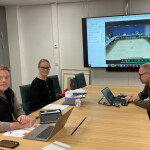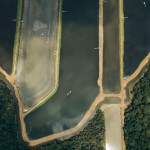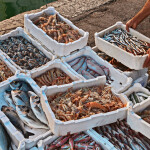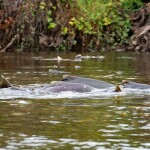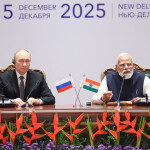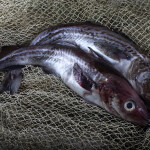Organization seeks broader observer access to RFMO decision-making
Sponsored
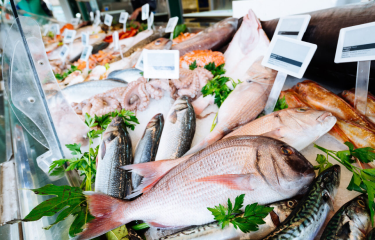
When Regional Fisheries Management Organizations (RFMOs) make decisions, the impacts reverberate worldwide for consumers, workers, retailers, suppliers, and beyond. With so many stakeholders invested in RFMOs’ far-reaching determinations, global access to these processes is imperative, which is where Accountability.Fish comes in.
The fisheries governance watchdog is a global organization committed to increasing openness and accountability in the international fisheries decision-making space. Unfortunately, secrecy has been pervasive in this arena, leaving large swaths of seafood stakeholders out of the loop, according to Accountability.Fish. The organization hopes a set of Equal Access Principles will help level the RFMO playing field, it told SeafoodSource.
“To help ensure that RFMO decision-making reflects the interests – and input – of all stakeholders, not just industrial fishers, we propose a set of Equal Access Principles be adopted, implemented, and enforced in all global RFMOs,” the organization, which is funded by Oceans Five, said.
These twelve principles include:
1. Open plenary and general meetings, including media.
2. Permit approved observers at all subsidiary meetings.
3. Mandate the use of all RFMO official languages in subsidiary meetings.
4. Interpret all rules relating to stakeholder observers and participation so as to ensure open and inclusive participation.
5. Mandate parity of treatment between stakeholders–NGOs, markets, producers and guarantee access to be heard by the delegations as well at national coordination, plenary, and subsidiary meetings.
6. Enact inclusive accreditation and participation rules to enable diverse stakeholder involvement, standardized across all RFMOs.
7. Implement clear and open guidelines for submitting written testimony and materials, free of any content-review process.
8. Remove undue restrictions on the rights of observers to make oral statements during the deliberation process rather than afterwards.
9. Recognize and include contributions made by stakeholder observers in any decision with potential impacts on the environment.
10. Promote partnership and joint activities with stakeholders with relevant expertise and/or local knowledge.
11. Make meeting locations and participation fees appropriate and reasonable for all participants.
12. Sustain stakeholders’ observer status even if one meeting is skipped.
The RFMOs for some of the world’s most prominent fisheries have a ways to go to achieve better transparency, according to Accountability.Fish Communication Lead Mike Klein. The Western and Central Pacific Fisheries Commission (WCPFC), for one, continues to hold its key compliance meeting session in secrecy, Klein explained.
“WCPFC represents nearly 60 percent of our planet’s tuna supply, making its decisions far-reaching and indeed global in scale. Yet for another year, members have chosen to keep observers out of one of the most critical meetings you hold,” Klein said following the removal of observers prior to a closed session the WCPFC’s Technical and Compliance Meeting held in Pohnpei, Micronesia in September. “The public has every right to understand WCPFC’s decision-making processes and the outcomes thereof. Consequently, Accountability.Fish has a right – and a responsibility – to call this secrecy out, and, for as long as it continues, we intend to call it out openly, publicly, and throughout our interactions with the commercial, political, and social actors with whom we engage.”
The WCPFC’s members include countries that “claim adherence to and even advocate the spread of transparent and open governance, in other areas of activity,” Klein added. Barring observers from meetings “threatens to make a sham of the commission’s rhetoric around sustainability,” per Klein and Accountability.Fish.
“WCPFC Members are not saving face by editing their actions for public consumption. Indeed, members’ behavior merits legitimate questions not only about the behaviors that such secrecy aims to protect, but also about the willingness of all member states and other economic stakeholders to continue to tolerate this secrecy,” Klein said. “There can be no accountability without openness. Without accountability, there is no sustainability.”
Sustainability depends not only on marine wildlife being able to satisfy needs in the here and now, Accountability.Fish Global Director Ryan Orgera explained, but that the current use of those resources won’t compromise their availability in the future. To do this, rules need to be set translucently and expressed to all stakeholders, a practice the WCPFC has not followed through on, Orgera said.
“Inherent in making industrial fishing sustainable is the necessity to set clear, transparent rules so everybody knows what’s expected of them and the extent to which governments – which by international law must oversee their flagged fishing vessels – can be held to account for how they are doing,” Orgera said. “The nations involved in fishing for this tuna came part of the way to mandating such rules last year. Now it’s time for them to finish the job.”
By not permitting non-industry observers access to crucial parts of its compliance meetings, the WCPFC guarantees that “there is no way to verify whether industrial fishers are doing anything more than ‘noting’ established guidelines, as we have no visibility of the actual volumes being caught,” Orgera added.
“Until members agree to implement the management procedure – and conduct its draft compliance report meeting in front of its accredited external observers, it’s just more of the same in the WCPFC, and the future health of our tuna is at stake,” Orgera said.
Accountability.Fish’s first-ever RFMO Tracker – published in late September following a recent meeting of the Inter-American Tropical Tuna Commission (IATTC) in Victoria, Canada – shows the potential that increased stakeholder access holds for real sustainable change, according to the organization.
“While the results of the meeting itself were unremarkable, our movement to generate more clarity and accountability is gathering steam, thanks to the actions of those observers who shared their knowledge of IATTC’s deliberations with us,” Orgera said.
While there is no legal requirement to do so, observers of IATTC meetings are encouraged to keep deliberations hush-hush, Orgera explained. However, at the recent meeting in Canada, observers and national delegates demonstrated courage and shared their takeaways, which are available to the public courtesy of the RFMO Tracker.
“Industrial fishing interests and their allies in the international fisheries space have long encouraged secrecy and opacity - to make it easier for them to maintain their one-sided advantages in the key decision-making processes. Thanks to the courage of observers and national delegates in Victoria, we have broken this secrecy for the first time,” Orgera said.
Key decisions arrived at during the IATTC meeting included the “watering down of key proposals due to the interventions of China, Chinese Taipei, and Japan,” as well as a “rejection of an E.U. initiative by the U.S., Japan, and Mexico,” Accountability.Fish noted.
“Publishing the results of the IATTC meeting is an important step towards driving a more holistic approach to ocean governance. The decisions being made by IATTC and other regional fisheries management organizations have far-reaching implications not only for industrial fishers, but also for regional economies and the global environmental picture. Citizens, conservationists, and market players have a right to know which countries are blocking progress or encouraging bad behavior, and to adjust their own commercial and political decisions accordingly. Accountability.Fish is committed to making this right a reality,” Orgera said.
Continuing to broaden access to RFMO meetings around the world is dependent on “the support of a diverse movement of stakeholders,” Accountability.Fish explained. For more information about the Equal Access Principles coalition and how to become an endorser, visit the Principles.Fish website.

